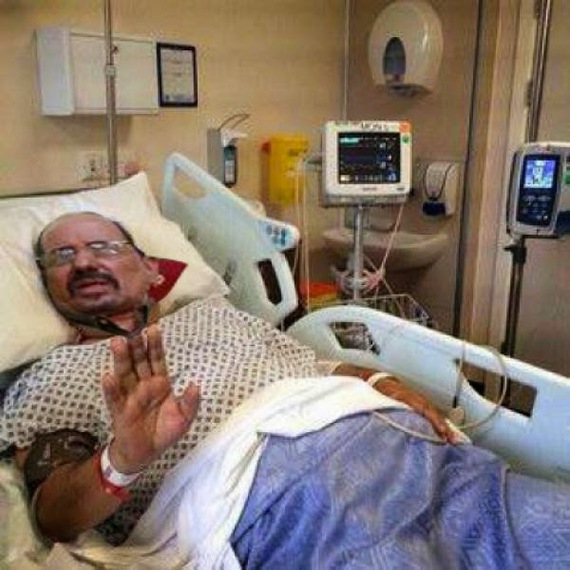This week saw the passing of guerrilla leader Mohamed Abdelaziz, after a long illness. For 35 years, he commanded the Polisario Saharan separatist militia in its struggle to conquer the southern half of Morocco. Backed by Algeria, he oversaw a crumbling rump dictatorship, sandwiched between the two countries, with a tent capital called Tindouf. Tens of thousands of Saharans still live there in poverty and squalor, denied freedom or movement or expression. But Abdelaziz's family and the Polisario elites who surrounded him enjoy free passage between their offices in Tindouf and their homes in Spain, Switzerland, and other coveted destinations -- largely thanks to international aid money intended for their subjects.
Abdelaziz, like the stalwarts who survive him, had been well aware of the transformations taking place across the border. The Moroccan government under the leadership of King Mohammed VI has been pouring billions into developing its Saharan territory. A journey from the squalor and suffering of Tindouf into the growth and development of the Moroccan Sahara feels like a journey from militaristic North Korea to the developed Korean democracy to its south -- a journey from darkness into light. Most inhabitants live not in tents but in high-rises. Investments have brought education, infrastructure, industry, and jobs. King Mohammed VI's economic and social development initiatives in the Sahara are joined by a political strategy of decentralized control: Inhabitants of all Moroccan provinces, including the Saharan south, enjoy the power to elect their own officials and administer the territories autonomously.
Scores each year defect from the Polisario camps, at enormous risk, in order to live in the Moroccan Sahara. Among those who remain, hundreds have attempted to organize demonstrations against their rulers. Abdelaziz responded to these trends not by opening the border and settling the conflict but by repressing protests and tightening his grip. He literally held a population hostage to maintain his power and wealth. This, in turn, spawned a third response from some of the youth: Despairing of bleak horizons, they turned to the nearby trade and smuggling routes of the Sahel, and found either careers in transnational crime or meaning in the maximalist message of jihadist groups in the area. Thus a petty tyrant's greed in turn stoked a regional security crisis now widely acknowledged as a global threat.
The passing of Abdelaziz presents an opportunity for change. Whoever inherits his throne can open a new page in relations with Morocco and end one of the world's most pointless stalemates. Placing the interests of the population first, he can free them to choose their own futures. He can negotiate a reunification of the territory -- and reunite families long separated by a border of lethality. He can do so at no risk to himself, offered amnesty and even privilege should he wish to join his people or the prerogative to rejoin his more immediate family in the West. The decision may not be entirely in his hands: The Polisario is ultimately a proxy army of the Algerian military oligarchy -- a pin they use to prick Morocco in an enduring, and equally tragic, Cold War. Here, of course, is where the courage of a real leader comes in -- the true independence of conscience and mind that would serve his people and help secure the world.

